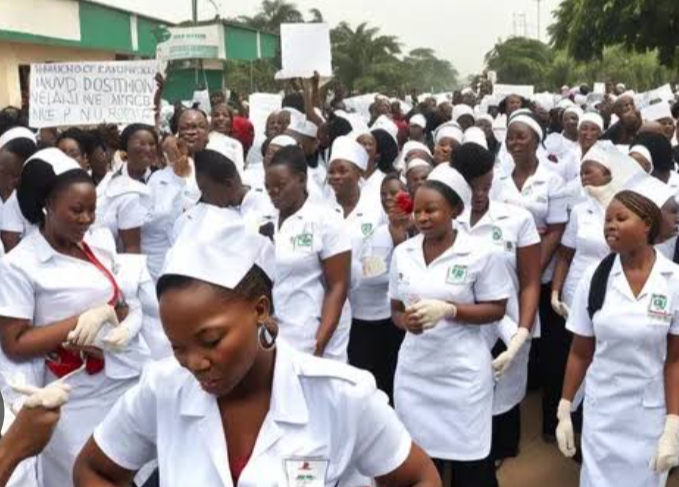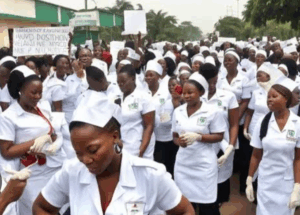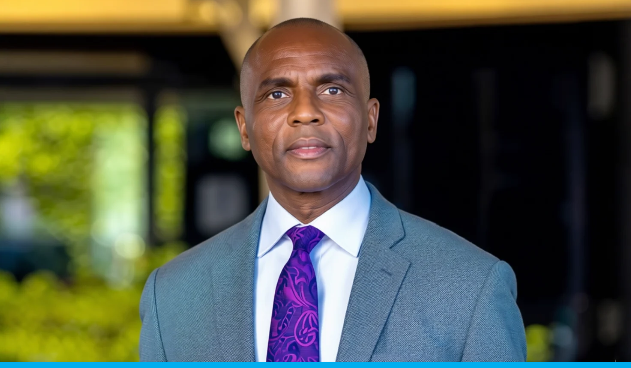The Federal Government and representatives of striking nurses and midwives are scheduled to meet this week in a bid to resolve the industrial action that has disrupted healthcare services across public hospitals nationwide.
The National Association of Nigeria Nurses and Midwives (NANNM) declared an indefinite strike earlier this week over what it described as the government’s failure to meet longstanding demands, including improved remuneration, better working conditions, and the full implementation of allowances approved in previous agreements.
Hospitals in several states have reported partial or total shutdowns of services, especially in outpatient departments, maternal care units, and emergency wards. Patients and their relatives have been left stranded in government health facilities, with many forced to seek costly alternatives in private clinics.
Reacting to the development, the Minister of Labour and Employment, Dr. Nkeiruka Onyejeocha, said the government is open to meaningful engagement with the nurses and will convene a conciliatory meeting aimed at averting further disruption in the health sector.
“We recognize the critical role nurses play in our healthcare system, and we urge the union to suspend their action while we work together towards a fair resolution,” Onyejeocha said in a statement issued Wednesday night.
The nurses, however, insist they will not return to work until tangible steps are taken to address their grievances. Speaking to journalists in Abuja, NANNM President Michael Nnachi accused the government of paying lip service to health sector reforms.
“We have reached a tipping point. Our members are overworked, underpaid, and in many cases, exposed to serious hazards without adequate protection. This strike is a last resort after all dialogue channels were exhausted,” Nnachi said.
The strike comes amid growing concerns over brain drain in the Nigerian health sector, with thousands of nurses and other medical professionals leaving the country each year in search of better opportunities abroad.
As the country grapples with a fragile healthcare system, stakeholders are urging both parties to prioritize patients’ welfare and reach a swift compromise to end the standoff.






